GOAT KIDDING KIT
With breeding season coming to an end, we have to make sure we start to prepare for kidding season. At Diamond D, we will be going thru our totes and making sure we have everything we need for smooth, healthy deliveries. I will first include things we consider must haves, and then add a few things that are just a bonus to have on hand.
* Before we begin, I do want to note that we are not veterinarians and are not providing medical advice. This is simply the items we keep on hand for kidding season and why we believe they are necessary. Please consult with your veterinarian.
1. Puppy Pads
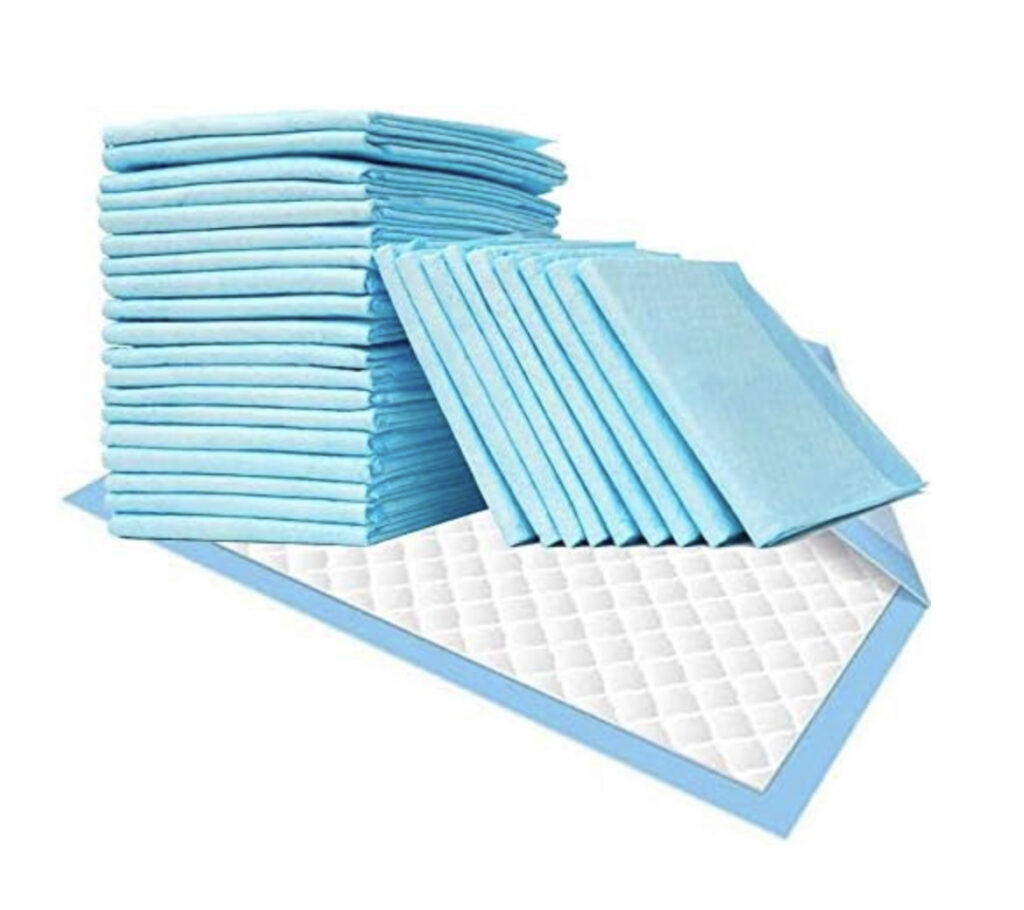
We like to use puppy pads behind and around our does in labor. When the kids fall directly to shavings/dirt/etc, they’re just dirty and harder for the doe to clean. We want to make sure our doe cleans her kids well and this helps speed up the process a bit. These also help us pick up baby easier to move them to the doe’s mouth to clean while she’s still birthing other kids.
Last year, our matriarch doe, who is so quiet when she kids, had her sweet little doeling on pasture and Momma and Baby were just fine. She just had to lick thru the dirt to get to the baby.
You can also use spare towels if you have some you’ve “donated” to the goats. But the puppy pads are easier to just dispose of afterwards.
2. Iodine
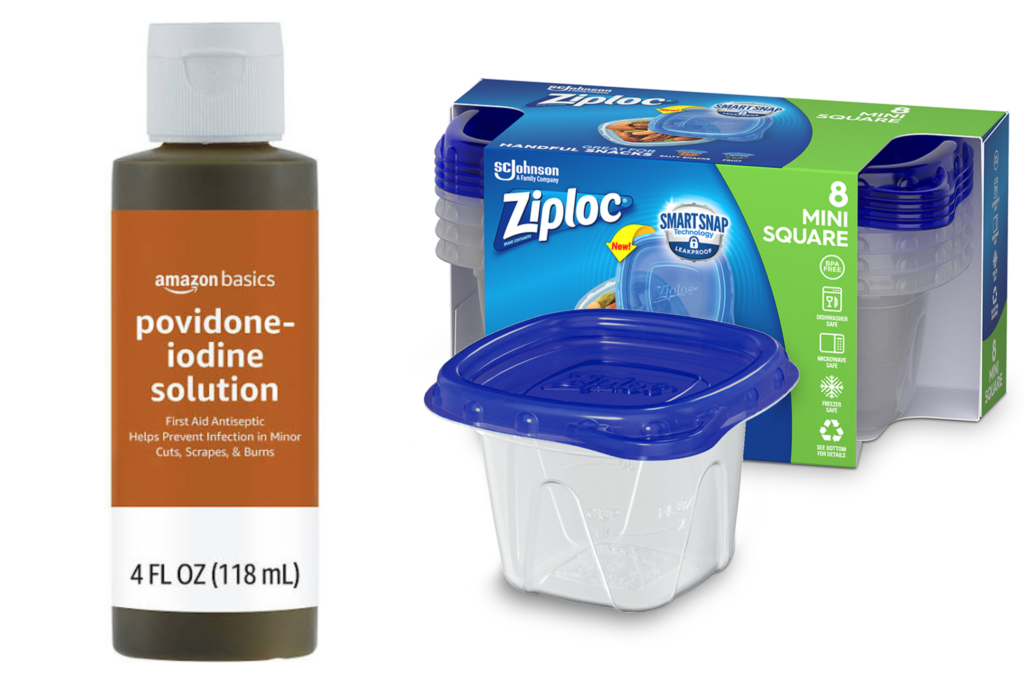
We use iodine to dip the newborn kids navel cord in to prevent opportunistic bacteria from entering its body.
How to: You will hold the goat kid with the its hind legs on the ground and position its back against your legs, while holding the front legs up off the ground. Place the container (can also use an old, clean pill bottle) filled with iodine against the kid’s belly with the cut (and tied if needed) umbilical cord inside the container.
3. Medical Grade Scissors
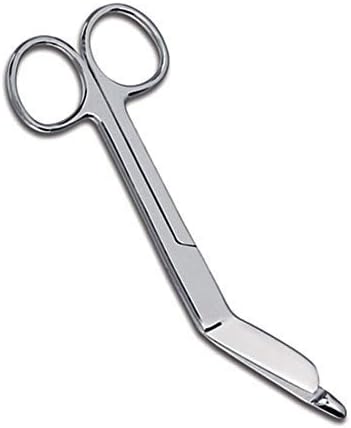
We keep clean, medical grade scissors in our kidding kits to cut umbilical cords, if necessary. Usually they will detach from the placenta when the kid fully exits the doe. Sometimes the cord is too long and dangles the ground, so it can be cut (and/or tied with dental floss) prior to dipping in iodine.
4. Bulb Syringe
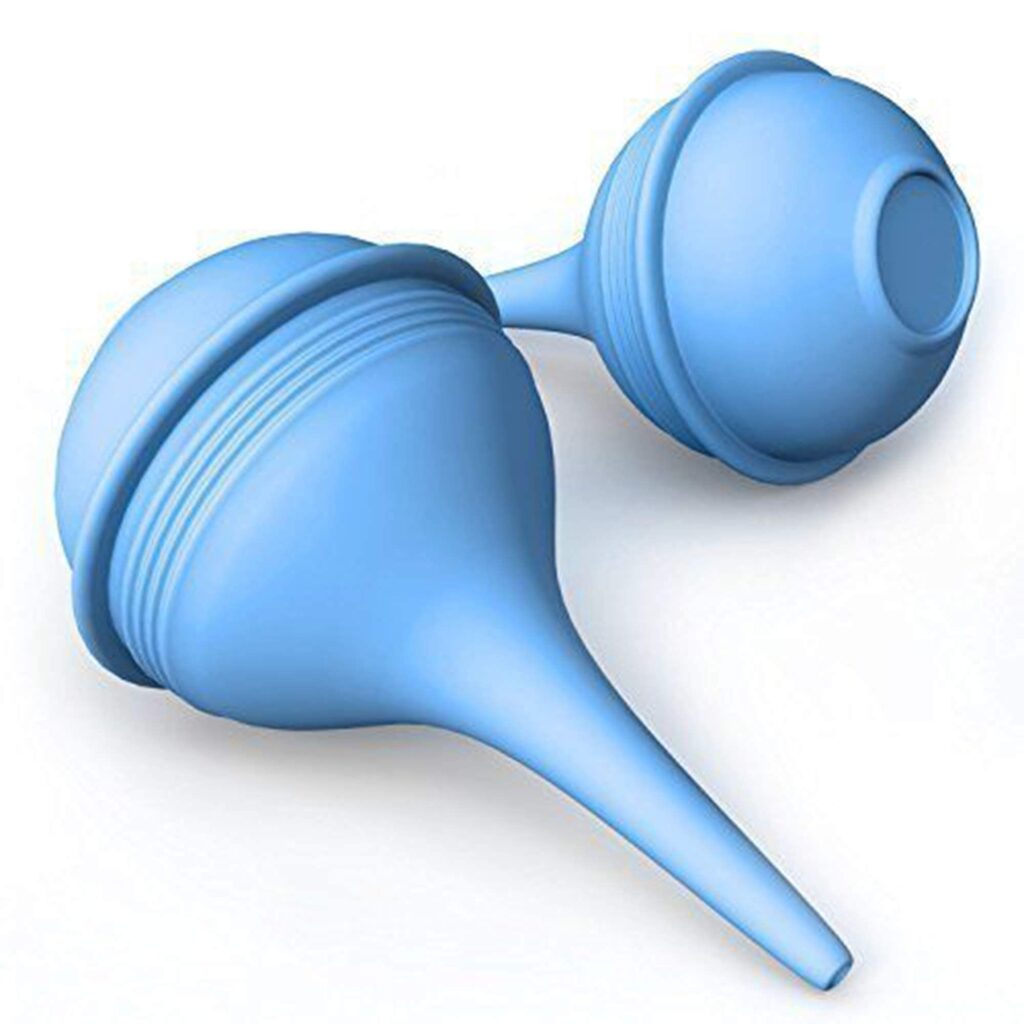
When a new kid is born, just like a human baby, its nasal and oral passages may be blocked with fluid from the sac. This fluid needs to be cleared quickly in order for the kid to take its first breath. Make sure you deflate the bulb syringe and then insert into the nose or mouth to then remove the contents. This may need to be done a few times.
5. Gloves
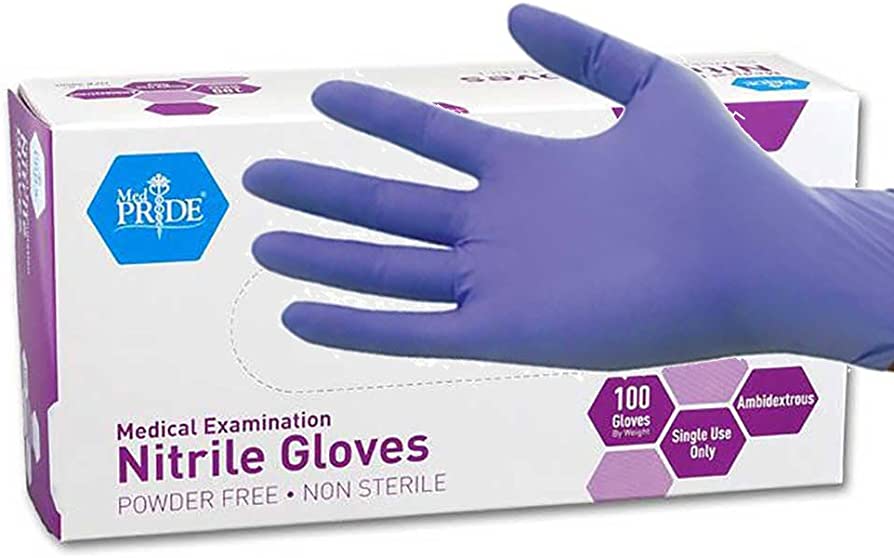
We try to make sure we are “gloved up” when a doe is in labor. You never know when you may need to assist. We like to use Nitrile gloves. They’re latex free, have a high puncture resistance, have a long shelf life, are chemical resistant, hypoallergenic, and waterproof.
6. Lubricant
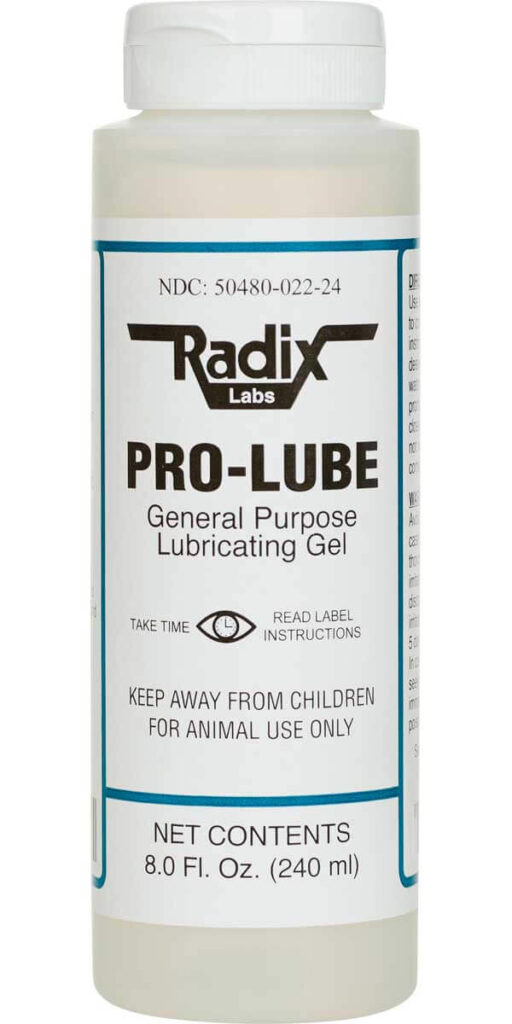
In case you have to “go in” it’s always good to have lubricant on in your kit. I don’t think your doe would appreciate you much without it.
We like to use this brand, Radix Pro Lube. We purchase it from Valley Vet Supply.
7. Molasses
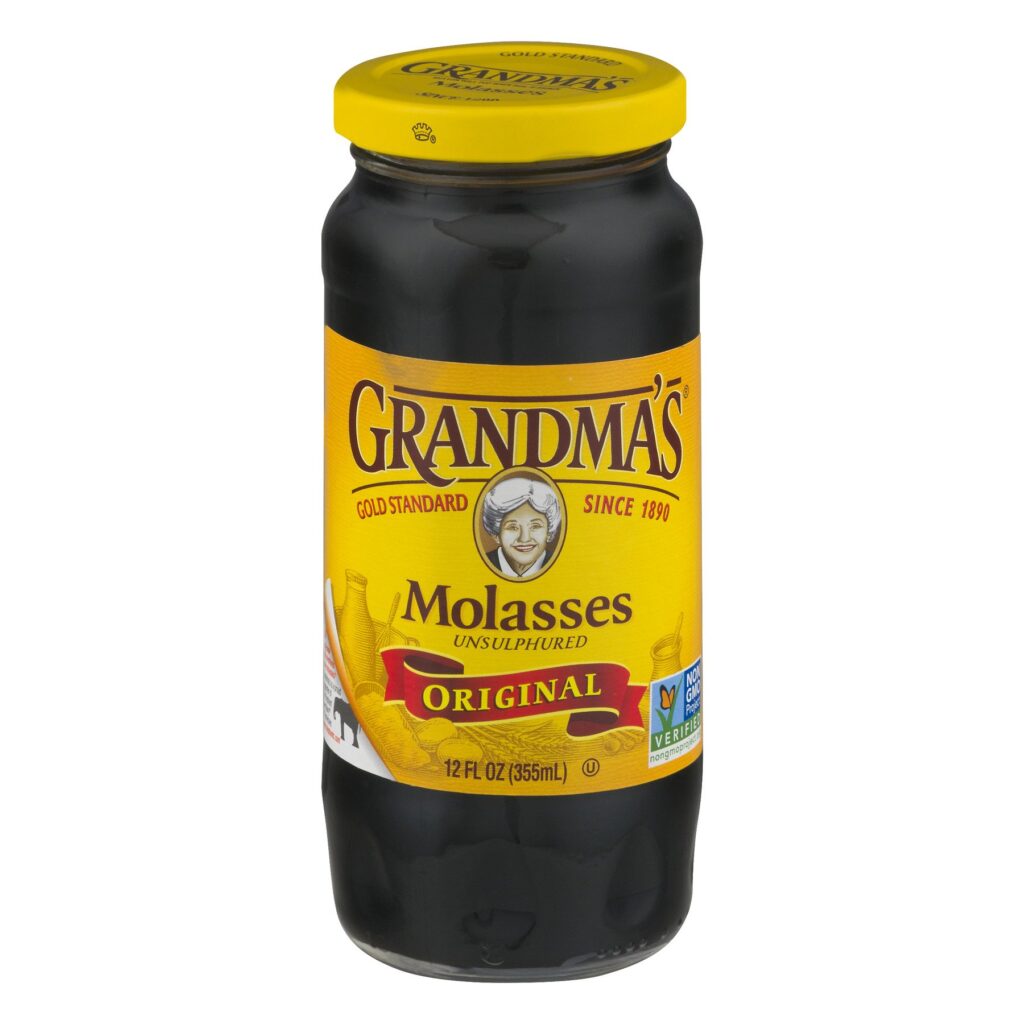
After (and sometimes during) labor, a doe can just be worn out. We like to give “molasses tea” – which is warm water mixed with a heaping amount of molasses. It will literally look like tea. Molasses contains iron and the sugar provides much-needed energy after a tough day of labor. Your doe will slurp it up so fast and thank you for it.
8. Trash Bags
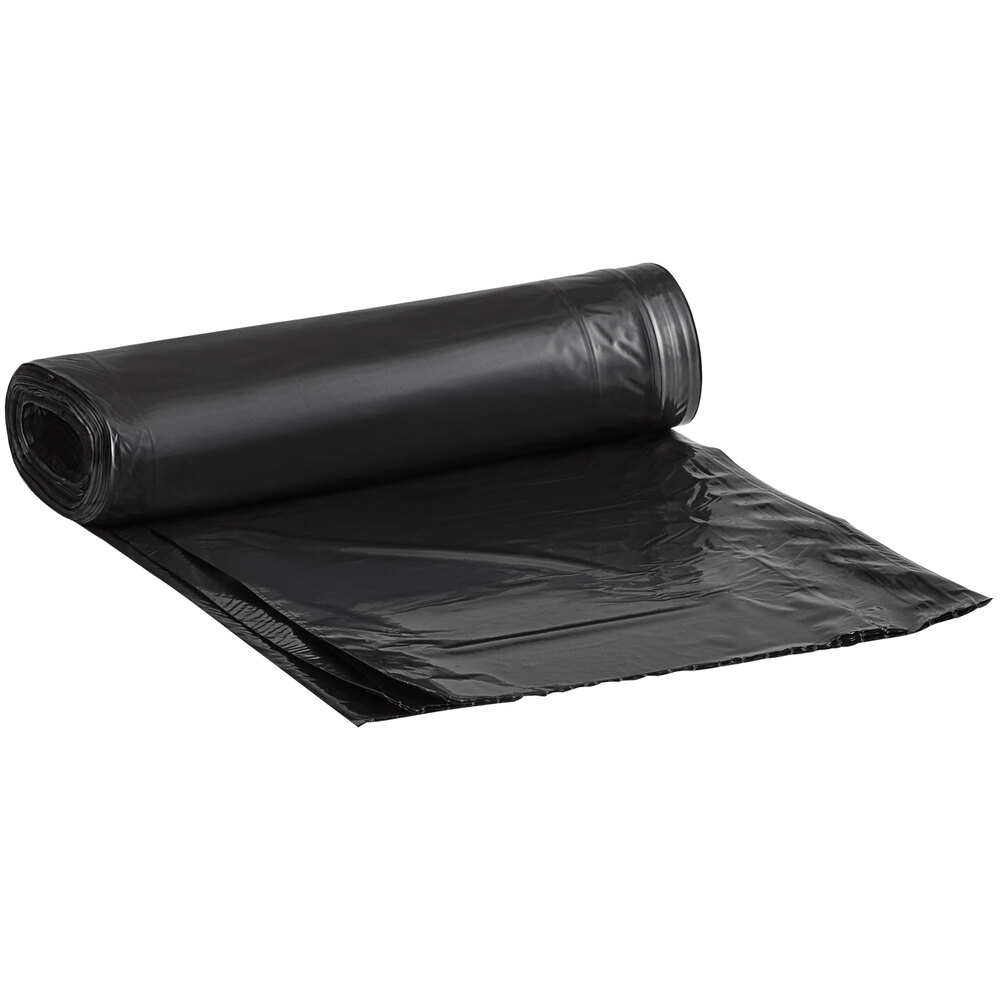
With dirty puppy pads, paper towels, and a placenta (usually our does do not consume all of their placenta) to deal with, its handy to keep a trash bag or two ready in your kidding kit.
9. Thermometer
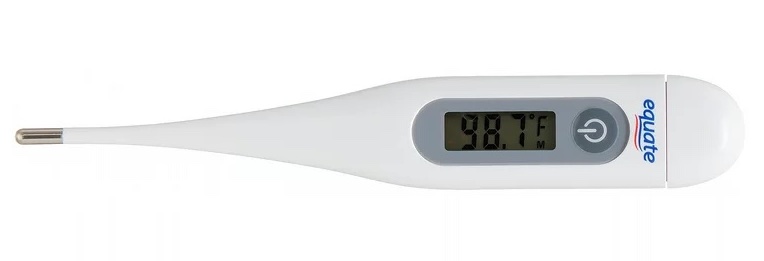
You can buy the most basic thermometers from the dollar store, and make sure you ave a few on hand. We keep one in the kidding kits, and one in the milking room.
10. ProBios


These are two of our favorites. Giving a dose of this to kids and the doe shortly after birth helps to manage stress and prevent nutritional upsets. Personally, we wait until the doe has fully cleaned the kids and let them nurse. We do not want to distract her too much.
11. Tums
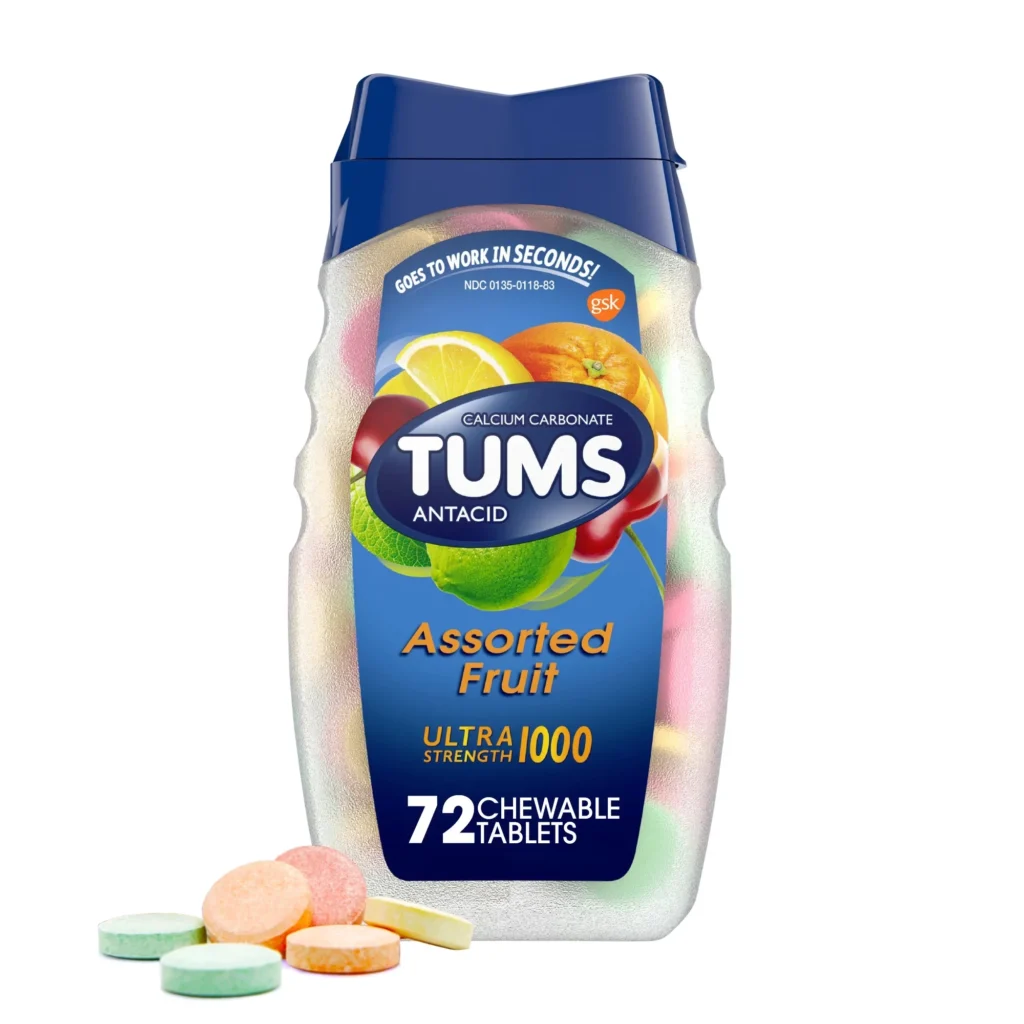
The calcium in Tums helps the does body handle the demands of the new kids, and a sudden surge in making milk. If the doe doesn’t have enough calcium in her system, she will rob the calcium from her muscles and that’s how milk fever happens. This is given on a case-by-case basis. It can also help with a doe who has had a prolapse recover.
12. Selenium & Vitamin E Gel
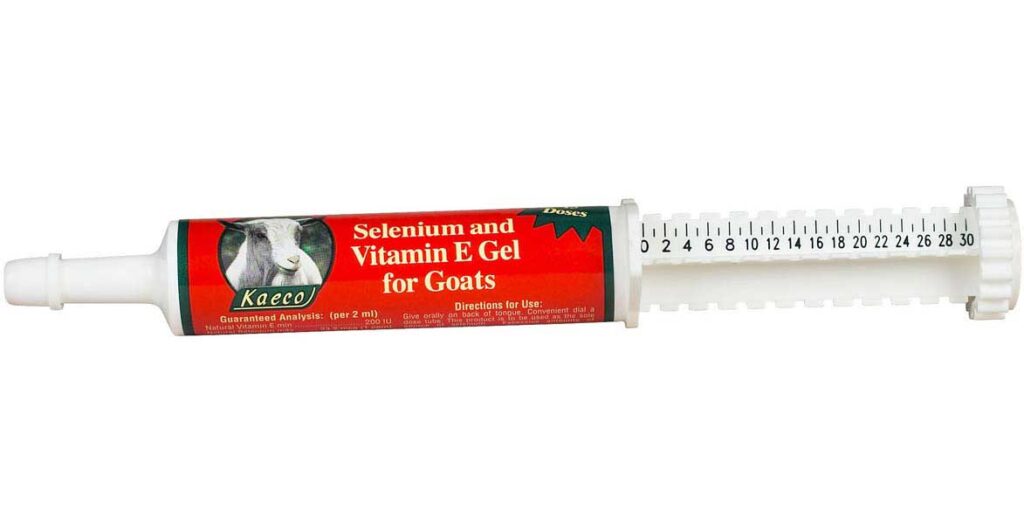
This is a product we would like to note, but that we do not actually give. We’ve had it on hand for years and have never had to use it. We have had our soil tested and we are not in a selenium deficient area. We also provide Selenium to our does full time in our Mineral Buffet.
13. Hair Dryer
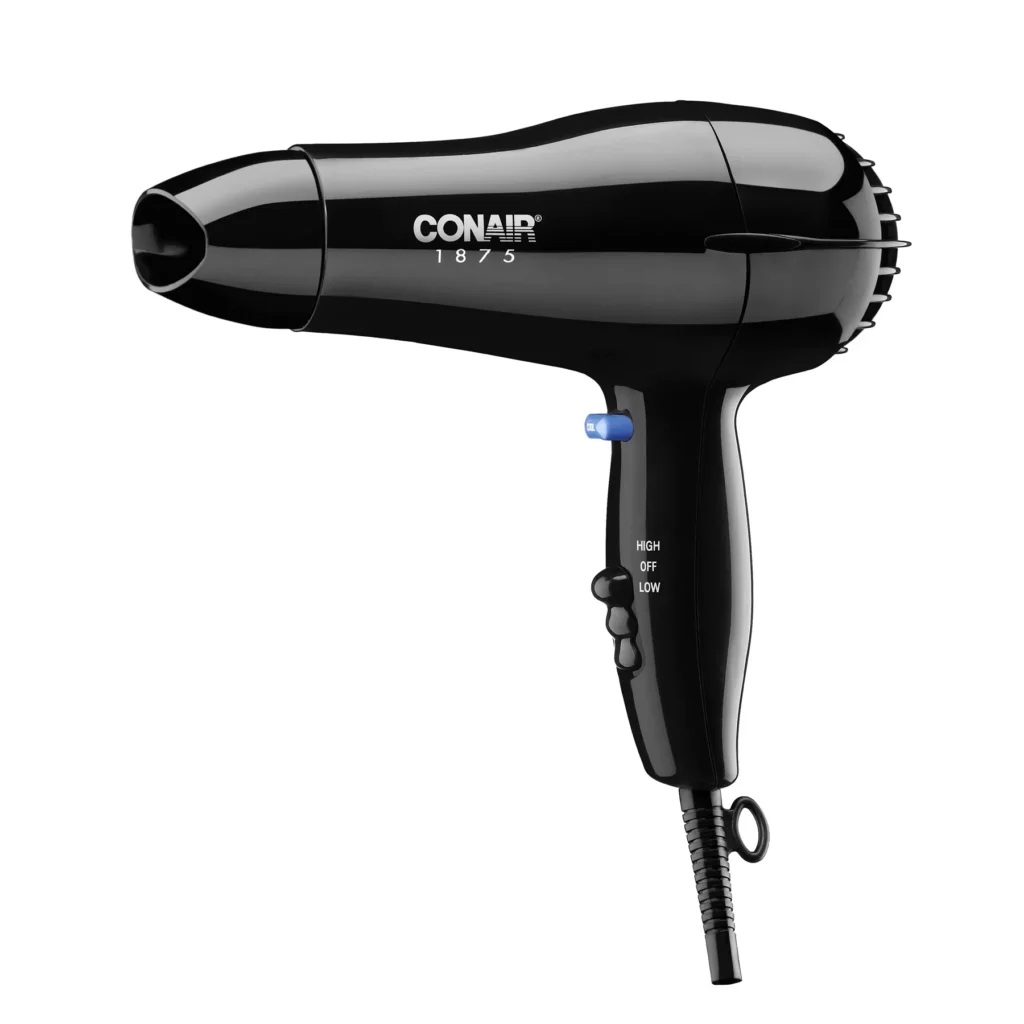
This is another item that we don’t actually keep in our kits, because we haven’t had to use one yet. If the need arises, we do have hair dryers available in our home. This is used to warm kids that were maybe born during cold weather or the doe has rejected.
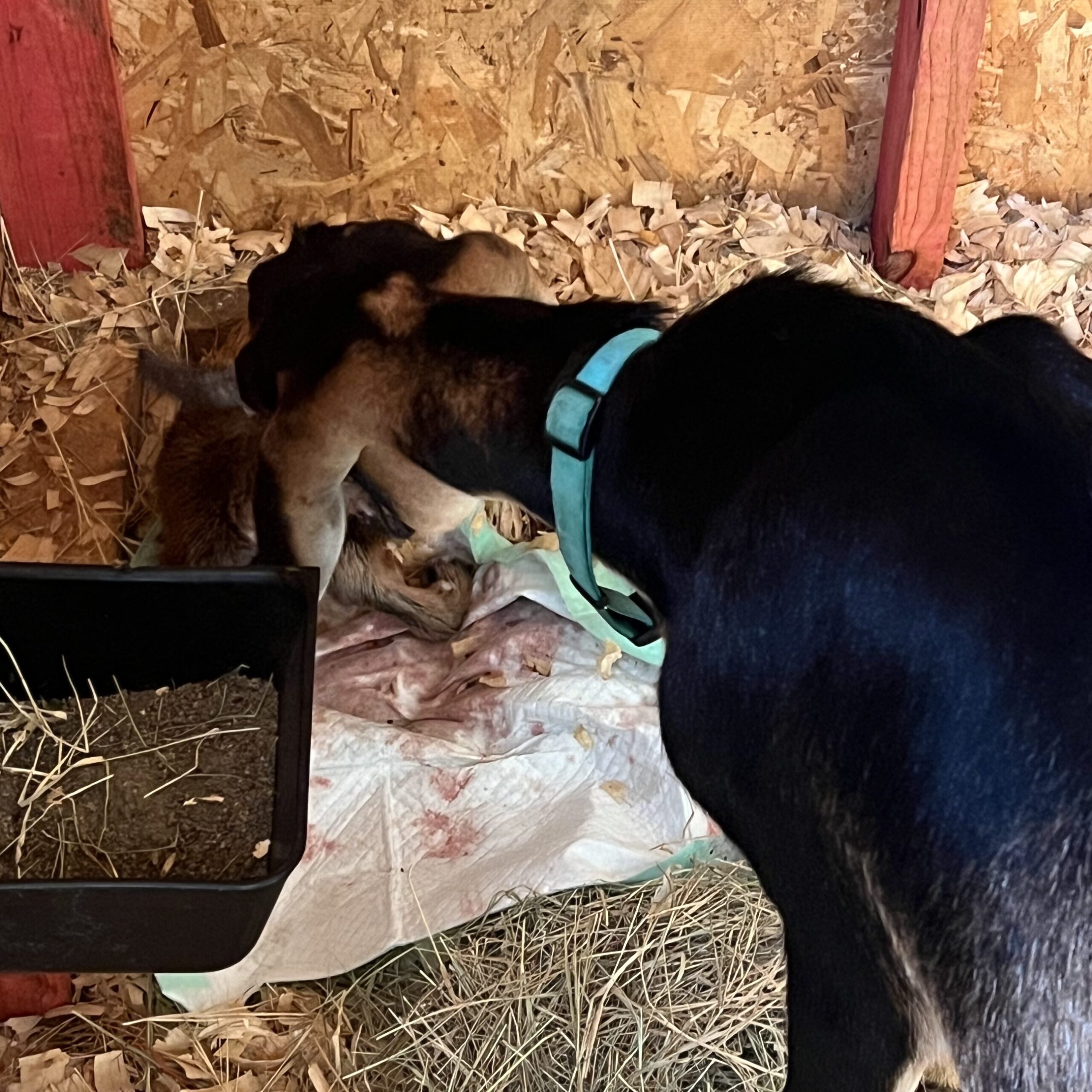
In the end, all of our farms are different and have different needs. These are our kidding kit essentials and I hope they help you plan for your kidding season.